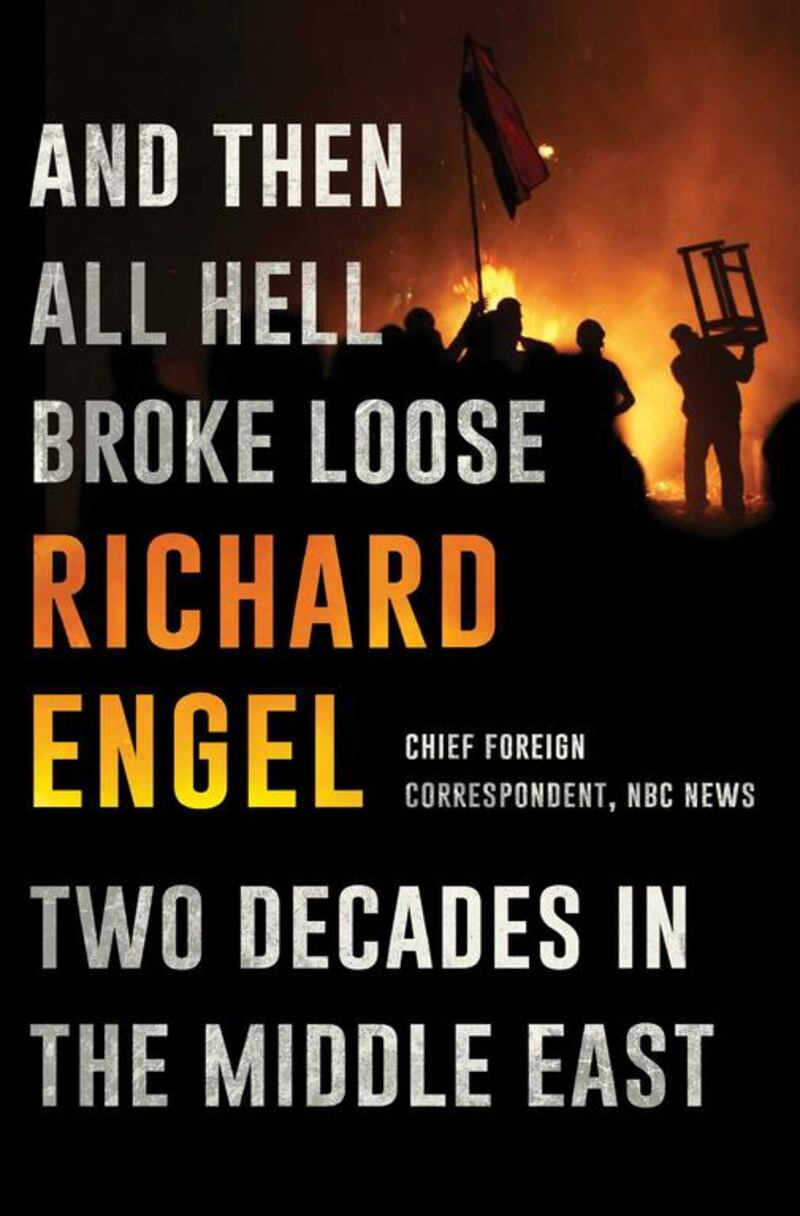And Then All Hell Broke Loose: Two Decades in the Middle East
Richard Engel
Simon & Schuster
Dh59
Regular viewers of television’s evening news are sure to have seen video of Richard Engel delivering narratives as he dodges bullets, bombs and artillery barrages while reporting on the latest conflicts in the Middle East.
Over the past two decades, the boyish-looking reporter for NBC News has emerged as perhaps the most familiar face that Americans count on to update them on complex, chaotic and critical developments in a faraway region that has come to dominate international news.
Like Forrest Gump, he seems to wind up wherever the action is.
Engel’s third book on the subject is both a memoir about his often dangerous assignments and a primer on the political and religious strife in the Arab world, a story that begins after he graduates from Stanford and takes off for Cairo with dreams of becoming a foreign correspondent.
No sooner has he taught himself Arabic than he comes in contact with violent fundamentalists, whose attacks on foreign tourists set the stage for similar bloodshed from Al Qaeda and ISIL. After four years in Cairo, he moved on to Jerusalem and covered the second intifada.
The switch from freelancer to staffer for a French wire service was followed by his shift to television, where bigger budgets allowed him to move around more easily.
Iraq was where Engel made his mark, securing a visa by posing as a peace activist prepared to serve as a “human shield” against US attacks, and then hiring a driver to smuggle him into the country through Jordan and across Iraq’s western desert. Soon after the bombings began, he was the last American TV reporter in Baghdad.
When a truck bomb explodes outside his hotel room during the insurgency, Engel wonders how long he can continue to cheat death and whether the constant danger is making him paranoid. But leaving Iraq does little to get him out of the line of fire. His transfer to Beirut comes just in time to cover the month-long war between Israel and Hezbollah. He then returns to Egypt for the Arab Spring uprising that brought down strongman Hosni Mubarak and crosses the border when the overthrow of Libya’s leader takes centrestage.
But Engel’s biggest brush with danger would come at the end of 2012, when he and his crew are held captive for five days in Syria during the civil war that continues to this day.
The author’s quick-paced account is a thrilling adventure story laced with historical context to help readers make sense of the longstanding sectarian hatreds that propel the violence in Iraq and elsewhere. Engel’s critiques of US policy are bipartisan, faulting presidents George W Bush for misguided military action and Barack Obama for his inconsistent response to the Arab Spring and the rise of ISIL.
No one can argue that Engel, now NBC’s chief foreign correspondent, missed the boat when he decided to head to the Middle East to cover what he believed would be his generation’s biggest news venue. “My ambition was to ride the train of history, and the train came rumbling right at me,” he writes.
* Jerry Harkavy / Associated Press





